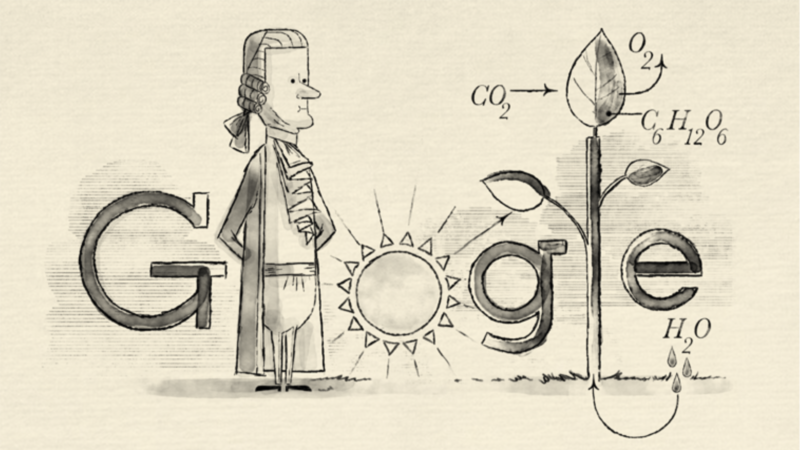Jan Ingenhousz Google doodle marks 287th birthday of scientist behind photosynthesis discovery
Ingenhousz also served as the family doctor for Austria's royal House of Habsburg under the rule of Austrian Empress Maria Theresa.
Today’s Google doodle recognizes Jan Ingenhousz, the 18th century Netherlands scientist credited with discovering the photosynthesis process.
Google notes while scientists were already aware plants produced and absorbed gases, it was Ingenhousz who discovered and published his research on plants producing oxygen in the sunlight and carbon dioxide in the dark.
“He published these findings in 1779, significantly influencing further research on plant life in the centuries to follow,” writes the Google doodle team on the Google Doodle Blog.
Google says Ingenhousz, born on this date in 1730, began to be interested in science related to medicine when he was a teenager. According to Google, Ingenhousz began inoculating people against smallpox when he was only 16 years old.
“He followed that passion to London, where he immunized hundreds of village people who were at risk for smallpox,” says the Google doodle team.
After learning about his smallpox vaccination, the Austrian Empress Maria Theresa brought him to Vienna to inoculate the entire royal family. He went on to serve as family doctor for the House of Habsburg.
Google says that in addition to medicine and his photosynthesis findings, Ingenhousz also made advances in the area of energy generation and particle motion research.
“For those digging into their biology textbooks this school year, be sure to thank Jan Ingenhousz!” says Google.
Contributing authors are invited to create content for Search Engine Land and are chosen for their expertise and contribution to the search community. Our contributors work under the oversight of the editorial staff and contributions are checked for quality and relevance to our readers. The opinions they express are their own.
Related stories
